Vuelta a España: Sagan overturns string of seconds in Málaga
First Grand Tour stage since 2013 for Slovakian champion
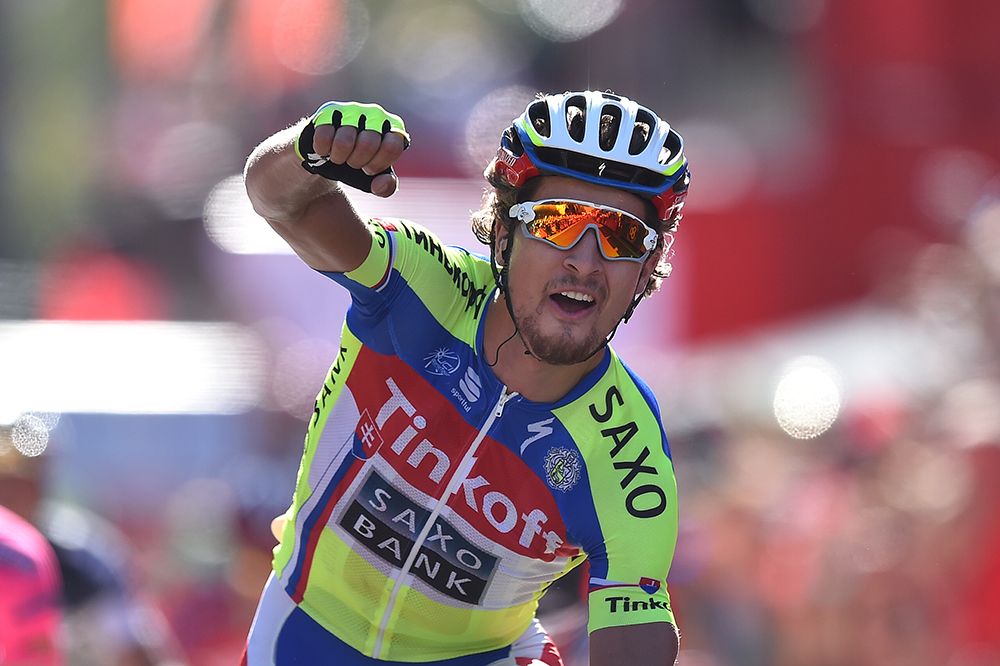
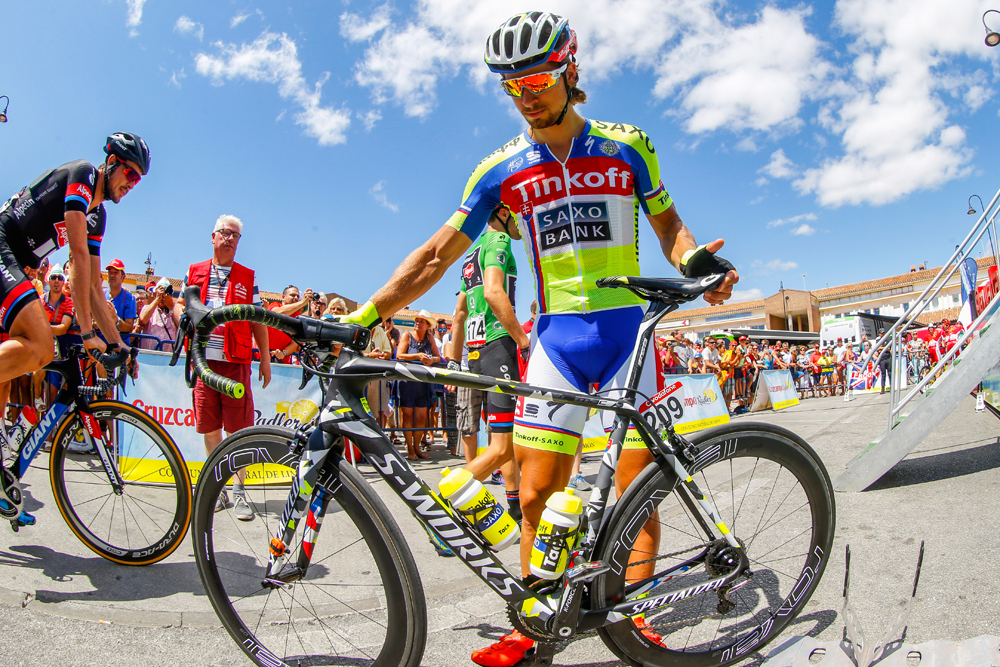
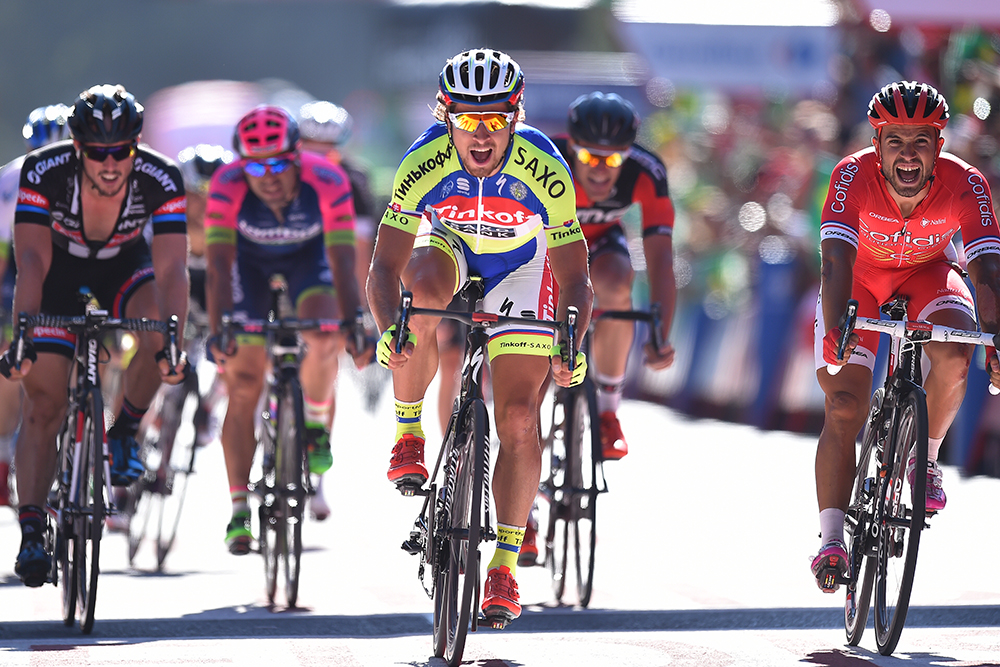
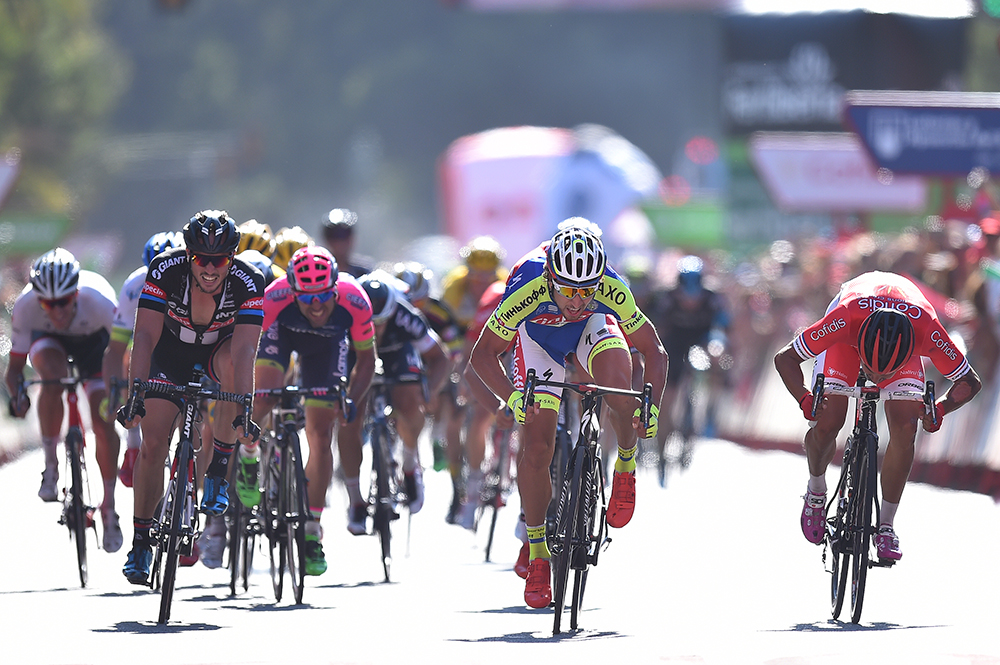
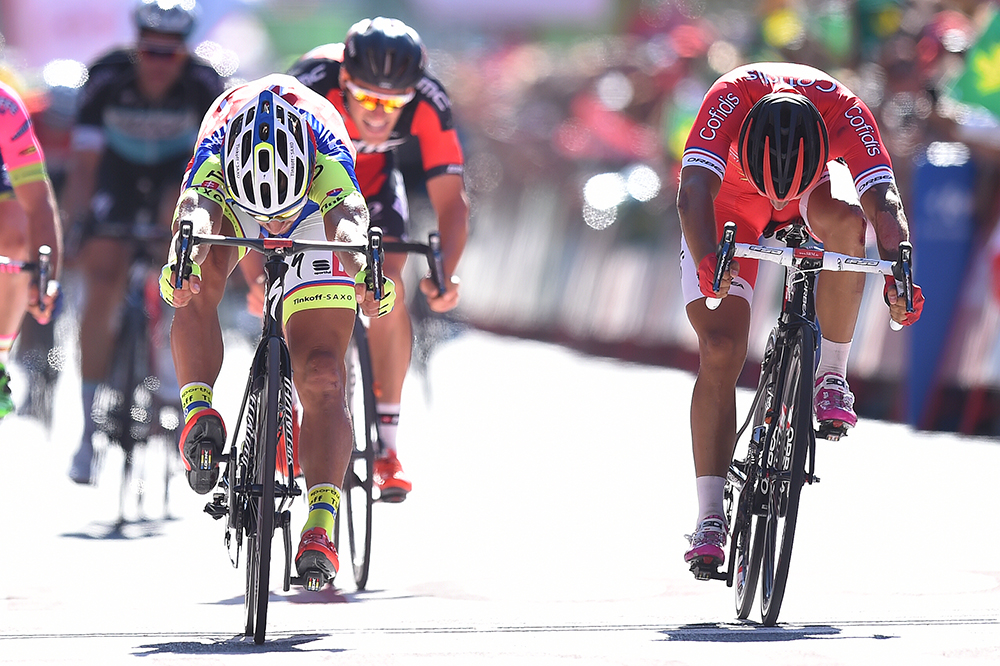
After a long series of Grand Tour near-misses, the most recent when Tinkoff-Saxo took second place in the Vuelta a España opening team time trial on Saturday, Peter Sagan finally claimed a long-awated triumph in Monday’s bunch sprint stage finish in Málaga.
When the Slovak raised his arms ahead of Nacer Bouhanni (Cofidis) and John Degenkolb (Giant-Alpecin) at the end of a long, fast sprint down Málaga’s arrow-straight Boulevard de la Alameda avenue, it was to celebrate his first Grand Tour victory since stage 7 of the Tour de France in 2013.
Since then there have been no fewer than 10 second places in the Tour de France for Sagan, as well as numerous top three and top five finishes. In the process, his consistency has netted the Tinkoff-Saxo pro three straight overall victories in the points competition at the Tour.
Yet it’s an indication of how much impact the Tour de France has on cycling and the media that Sagan perpetually finishing second has become one of the sport’s best-established urban myths. However, even just looking at 2015, that legend has very limited truth, given Sagan has taken victories this year in Tirreno-Adriatico, the Tour de Suisse, the Slovakian national championships and the Tour of California.
Either way, using his typical deadpan humour, Sagan argued after Monday’s win that he had not been irritated by the perpetual claims that he was "always second".
"I was never cross because it’s always impossible to be second all the time, either way you have to be either first or third at some point," Sagan said with a smile.
"A top five placing in any race is good, but I’m happy for this win because I’ve been looking for it all the way through the Tour, and now it’s come."
Get The Leadout Newsletter
The latest race content, interviews, features, reviews and expert buying guides, direct to your inbox!
Furthermore, after a Tour where it sometimes seemed like there was an unwritten law stating that journalists had to include the word ‘second’ in all of their questions to Sagan, the Slovakian recognised Monday's victory was more than timely. That his win had come so soon in the next Grand Tour on the calendar surely reinforced his sense of satisfaction, too.
With his Tinkoff-Saxo teammates working so hard on the front throughout almost all of the key parts of Monday’s Vuelta stage, including the category 1 Puerto del León midway into the stage, Sagan said he almost felt obliged to honour that collective effort with a victory.
"I had to win today. They were pulling really hard on the long climb and then again for the last 100 kilometres," Sagan argued. "It’s a good win for the team, good to start like this."
"Finally a victory has arrived. I’ve always been trying. Some day it had to come and today was very nice. My thanks to my teammates."
A ‘re-encounter’ with victory for Sagan in the Vuelta feels appropriate given his first Grand Tour win at age 21 was in the 2011 edition of the race. That year Sagan racked up three stage wins in Spain, including the final sprint into Madrid.
Then as now, Sagan was riding with little team support in the final kilometres, particularly after teammate Daniele Bennati, a former Vuelta leader and a gifted sprinter in his own right, crashed and dropped back injured. But as Sagan saw it, Tinkoff-Saxo’s really hard work was carried out before the final kilometers - after which it was up to him to deliver.
"I don’t have a train like the other guys in the finale, but the team spent a lot of energy in the last 20 kilometres," Sagan explained. "They were pulling very hard to bring back the [day-long] breakaway and Degenkolb and Bouhanni’s teams weren’t pulling so much then."
"Then they [Cofidis and Giant-Alpecin] came to the front at the end of the stage and I could get on Degenkolb’s wheel."
Sagan’s decision to take things on the day by day in the 2015 Vuelta became almost embarrassingly obvious when he was asked if he had any designs on Tuesday’s uphill finish at Vejer de la Frontera. "It’s not a flat stage?" Sagan said, visibly surprised, "I’ll have to look at the race route book again."
Sagan was equally uncertain about whether he would go for a points classification "double" in the Vuelta after his Tour green jersey, either. Rather he said he would have to study how points were distributed on the Vuelta’s different kinds of stages - mountainous, flat and hilly - before reaching a decision.
Sagan’s main final goal of the season being the World Championships, in fact, the Slovak admitted he was not sure if he would go all the way to Madrid. "I came here mostly for preparation for the Worlds, to do some race kilometres and see how my form is going."
"Now I know that it’s good, we’ll see how I take the rest of the race." Either way, though, Sagan’s much-needed latest Grand Tour stage victory is finally in the bag.
Alasdair Fotheringham has been reporting on cycling since 1991. He has covered every Tour de France since 1992 bar one, as well as numerous other bike races of all shapes and sizes, ranging from the Olympic Games in 2008 to the now sadly defunct Subida a Urkiola hill climb in Spain. As well as working for Cyclingnews, he has also written for The Independent, The Guardian, ProCycling, The Express and Reuters.
